In the final episode of our three-part series covering the 80th U.N. General Assembly, host Landry Signé interviews members of the U.N. and its partners on how the organization upholds international peace and security, including through its developmental support to fragile states.
Participants:
- Yinka Adegoke, Senior Editor, Semafor
- Abdoul Salam Bello, Chief of Economic Affairs, Office of the High Representative for the Least Developed Countries, Landlocked Developing Countries and Small Island Developing States
- Luis Franceschi, Assistant Secretary General, The Commonwealth
- Gyude Moore, Distinguished Fellow, Energy for Growth Hub
Transcript
[music]
SIGNÉ: Hello, I am Landry Signé, senior fellow in the Global Economy and Development Program and the Africa Growth Initiative at the Brookings Institution, and host of the Foresight Africa podcast. Welcome to the final episode of our three-part series reporting from the 2025 U.N. General Assembly, celebrating 80 years of the United Nations.
Here at the Brookings Foresight Africa podcast, I engage with distinguished leaders in policy, business, academia, and civil society who share their unique insights and innovative solutions to Africa’s challenges while highlighting opportunities to advance engagement between Africa and the global community. You can learn more about this show and our work at Brookings dot edu slash Foresight Africa podcast.
The United Nations General Assembly, known as UNGA, is the world’s top political summit, featuring everyone from top diplomats and heads of state, to rising and established stars in business and civil society. This year’s Assembly was organized with the theme “Better Together,” reflecting the present sentiment that we are in a time where the case for multilateral global governance needs renewed defense.
In this conclusion, my guests and I discuss the United Nations’ support for international peace and security, the main reason for its founding back in 1945, and we consider what our world might have looked like without the UN and the forum it provides for countries to diplomatically resolve disputes and seek assistance with domestic conflicts.
[music]
My first guest is Abdoul Salam Bello, speaking on behalf of a United Nations institution that represents some of the most marginalized states in the international system. He explained that addressing the security needs of these states is amongst the United Nations’ greatest accomplishments.
BELLO: My name is Abdoul Salam Bello. I’m the former executive director at the World Bank for Group Africa Two. But currently I serve as a chief economic affairs in the Office of High Representative for the Least Developed Countries, Landlocked Developing countries and Small Island Developing States.
Eighty years is quite a long period. Enduring achievement, I would say is still being here and relevant for 193 countries today. Also providing support to, how we say, the most vulnerable countries. Leaving no one behind, as you say, especially in the context of conflict, humanitarian issues, through peacekeeping operations, providing the platform for negotiation, peaceful resolution of conflicts, but also providing a solution for development response going forward. So I would say achievement are quite substantial in this regard.
The vulnerable groups are 91, that are from the least developed countries to the landlocked developing countries, to small island developing states. So, for each of these group, we have series of activities and engagement regarding some specific activities or needs that for which either they need some supports. We are helping create that platform or even a statutory discussion like the ministerial-level meeting to monitor the implementation of the respective program of action.
So we’ll have the the launching of the Center of Excellence for ABAS [Antigua and Barbuda Agenda for SIDS (small island developing states)] sometime this week. We will be at the AOSIS [Alliance of Small Island States], which is the small island developing state platform meeting this week, but also two important ministerial meeting, one for the the least developed countries or for the landlocked developing countries for which also we are providing support. To have the leaders of these respective group reflects on the implementation of the program of action, to reflect on the reform of the United Nations wherever they find it relevant for them, but also supporting initiatives, partnership that helps foster the implementation of those programs.
For instance, in Awaza, in Turkmenistan, we had very good engagement with the AIIB, the Asia Infrastructure Investment Bank, that pledged up to $10 billion over the next five years to support the landlocked developing countries.
So those are the initiatives. We believe also that are very, not only ambitious, but also are meant to provide results, impact impactful solution for the various constituents.
[music]
SIGNÉ: Next I spoke with the assistant secretary general of the Commonwealth, who was adamant regarding the continued value of the United Nations for all its member countries, particularly in the area of peace and security.
FRANCESCHI: My name is Professor Luis Franceschi, assistant secretary general of the Commonwealth.
You know, the Commonwealth is a beautiful organization. It’s friendship with a purpose, 56 countries bound together by common values, which include good governance, the rule of law, human rights, democracy, freedom.
These countries came together through a painful past, and they have actually made positive strides out of that painful past to work into a community where there is free movement of goods, peoples, and services in these 56 nations.
Certainly this this is a dream, but we call it friendship with a purpose where these countries work together, collaborate, cooperate, and show the world we are one human family, and it’s doable.
So I think the Commonwealth presence, the countries’ presence at the UN, is a huge statement. In a polarized world where many countries do not want to appear, do not want to come, do not see the priority of being here, well, I feel sad because that means polarization, we have to avoid that. And I think the Commonwealth member countries are very much aware of this and they want to discuss peace, good governance, security, climate change, trade. I mean, it’s a fantastic arena for a very fruitful and constructive discussion.
SIGNÉ: For the assistant secretary general of the Commonwealth, ensuring peace is the United Nations’ chief selling point, something that needs to be reemphasized now more than ever as its role is being questioned by some.
FRANCESCHI: And I think the UN has gone through a process of a crisis of identity and has to reinvent itself back to the roots. When in 1989, the Berlin Wall collapsed and suddenly the world lost that bipolar balance of powers the U.N. went into a crisis of identity. What are we here for? And the agencies of the U.N. have mushroomed, then the U.N. was forced to do everything under the sun.
And I think this is time to regroup, rethink, and say, look, the U.N. is not here to resolve all humanity’s problems. It’s here to foster, maintain, and propagate that idea of peace. We can resolve our problems in a rational way. We do not have to fight with each other. And in this, we have to help the U.N.
So I think observer organizations like the Commonwealth have the duty to help the U.N. in this process and to encourage members to foster that dialogue, to foster that togetherness that is being broken by polarization.
SIGNÉ: Working together, the Commonwealth and the United Nations have intervened in many challenging conflicts, setting countries on more positive trajectories.
FRANCESCHI: The Commonwealth, and this is why I began by saying it’s defined as friendship with a purpose, in a beautiful way has worked together with the U.N. in countries where we were at the brink of civil war or general unrest to breakdown systems. And we manage to intervene effectively and prevent lamentable situations because we were close to the leaders, we were close enough to bring those leaders in different poles together. And this happened in Zambia, in Sierra Leone, in situations where there was the danger of going down the drain in the wrong direction. And thanks to that friendship and that closeness with the leaders of government and opposition, we managed somehow to help bring them together.
Of course, the U.N. played a key role in this. Sometimes I feel the U.N. may get stuck in this role because you are at the level working at the level of officials. And many times when we are at war, the problem are the officials. For the leaders, it’s an issue of looking at the bigger picture. For the officials it’s life or death. It’s do I have a job, or I don’t? Do I become a minister, or I don’t? Do I become an ambassador or I lose the income for five years?
So many times, officials with very good intentions can try to prevent that dialogue from happening. And that’s where I think the Secretary General of the U.N. and organizations like the African Union, the Commonwealth, et cetera, have to bring them together. It happens in Africa. Whenever there is a problem in a family, you have the uncles and aunties who come to negotiate and put things back in order. Well, I feel we, multilateral organizations. are like those uncles and aunties who have to come to help mediate and bring parties together.
[music]
SIGNÉ: As the U.N.’s partners like the Commonwealth seek to combat polarization and stress UNGA’s contributions to peace and security, media organizations also have an important role to play. My next guest spoke on the mutual advantages that the U.N. and the press offer each other during UNGA.
ADEGOKE: I am Yinka Adegoke. I am the Africa editor for Semafor. With Semafor as a media publication, we are looking for the best stories about developments, about the changes in the global economy, the to meet the decision-makers here. Because we are constantly telling stories, we want to try and be ahead of the curve and not to wait till the news happens to by speaking to the right people. And most of the right people are here throughout UNGA week, whether they’re they’re down at the UN itself, or they are at one of the many side events that we all attend.
And it’s so important for us to meet the right people — everyone from presidents and government ministers to major business leaders particularly on the continent, to talk us through their kind of agenda, what’s important to them. And and that way will give us some sort of insight into how things are going to evolve, how things are going to change.
You know, to be to be frank the media also has a role in in in strengthening multilateral engagement because of the way we we might frame the conversations that are happening here, the way we might tell the stories about what is happening here.
We are going through a time when people talk about the the sort of end of multilateralism. And and it it’s quite frankly doesn’t feel like that when you are talking to this many players who all have aligned goals or aligned ambitions.
And again, this influences the kinds of stories we tell, which we hope has some influence on the way people, you know, think about their their policymaking.
[music]
SIGNÉ: My next guest supported the idea that despite these pressures on multilateralism, there are still many areas of common agreement amongst international actors.
MOORE: My name is Gyude Moore. I’m currently a distinguished fellow at the Energy for Growth Hub; it’s a think tank that focuses on productive use of energy in the developing world. I’m also the former minister of infrastructure in Liberia.
SIGNÉ: I asked Mr. Moore what his organization’s top priorities for the 80th UNGA were, and how he saw these shaping the global agenda moving forward.
MOORE: I think what we’re focused on, there’s this number that everyone keeps saying: 600 million people in Africa lack access to energy. And what we’re focused on is, one, is increase the number of people who have access to energy, but most importantly increase the number of firms, African firms that have access to energy. Because adding value is where we’re going to create wealth and create jobs on the continent. And so increase energy use for firms, for individual, and for job creation.
I think in the end, for organizations like mine and for the United Nations, the way we are going to move forward is that, yes, multilateralism is under stress. Yes, multilateralism is is being threatened, but that doesn’t mean that there aren’t things on which we can agree. So on the things where we agree, we forge consensus, and we move forward on those things.
And I think providing energy for the poorest parts of the world, providing energy that is cheap and affordable so that African companies can add value to their exports, to the African exports to the rest of the world can be more complex and more diverse. I think on those things we can find agreement. And the U.N. has been a very big part of it.
But as there’s so many things happening in the world. There are wars going on in the world. Multilateralism is under threat and under stress from many angles. But for our organization we understand that some of the goals that we want can only be achieved through multilateralism. And so for us, we’re still dedicated to multilateralism until we can find a better way to solve global problems is going to be the way that we go.
SIGNÉ: This accords with the views of Abdoul Salam Bello and Professor Franceschi when I asked about the continuing benefits of multilateralism.
BELLO: Maybe we can reverse the question. So what if the system doesn’t exist? So, how and where the country will turn, to whom will they turn to to advance their agenda? Nowhere. So the U.N. provides that platform. And you see it even with all the gatherings, the statements made by the various head of delegation during the General Assembly.
So I would say advantage and opportunity is being relevant, being present, creating the platform, having what we call the convening power to bring as much as possible all the stakeholders together to help address specific issues.
FRANCESCHI: Nowadays there are very many people who think UNGA is a waste of time, that the United Nations spending so much time leaders come and discuss and nothing happens. And it is not true. The price we pay for UNGA is the price we pay for peace. For as long as we keep the conversation going, peace will be there.
And of course, it’s very hard to measure because when you are measuring peace, you are trying to measure what has not happened — that is war.
So you will never see the fruits and the goodness and the results of the United Nations because the United Nations was founded for peace. And for as long as there is peace, they’ll say “well the U.N. was doing nothing.” And when dialogue stops bullets are shot, guns set into place, set into motion. When we stop talking, we start fighting.
[music]
SIGNÉ: What a powerful note to end on. This concludes our special series on the United Nations General Assembly 2025.
Over the past three episodes, we have heard from influential stakeholders from across various sectors on their appreciation for the United Nations’ vital role and their incisive recommendations for how the organization can adapt to the challenges of the next 80 years.
We heard from development experts and advocates on the need to translate ideals into concrete action, unlocking the potential of developing economies in Africa and elsewhere in the Global South. And on the importance of restructuring global development to ensure sustainable financing and host country agency.
We heard from the United Nations institutions and business leaders on the important role of the global private sector both in financially supporting the Sustainable Development Goals, and in creating quality jobs and opportunities. We also heard how the United Nations supports industrial development around the world, including by setting agendas in creative sectors like fashion.
Finally, we’ve heard about the key function of the U.N. in preserving international peace and upholding stability in fragile states.
Across the entire series, one common point has been the value of the United Nations’ convening power, bringing together some of the world’s most powerful people representing all kinds of nations and organizations and encouraging them to find common ground and working together for global priorities. This is really something you can feel on ground at the United Nations General Assembly, especially at this important 80th anniversary milestone. As much as things have changed since 1945, this ability of the United Nations remains as appealing as ever to its members and partners.
[music]
I am Landry Signé, and this has been Foresight Africa. Thank you, listeners, for joining me today.
The Foresight Africa podcast is brought to you by the Brookings Podcast Network. Send your feedback and questions to podcasts at Brookings dot edu. My special thanks to the production team including Fred Dews, producer; Dafe Oputu and Nicole Ntungire, associate producers; Gastón Reboredo, audio engineer; and Izzy Taylor, senior communications coordinator in Brookings Global.
The show’s art was designed by Shavanthi Mendis. Additional promotional support for this podcast comes from my colleagues in Brookings Global and the Office of Communications at Brookings.
- Subscribe to Foresight Africa on Apple, Spotify, Afripods, or wherever you listen to podcasts.
- Listen to previous episodes.
- Watch episodes on YouTube.
- Learn about other Brookings podcasts from the Brookings Podcast Network.
- Sign up for the podcasts newsletter for occasional updates on featured episodes and new shows.
- Send feedback to [email protected].
The Brookings Institution is committed to quality, independence, and impact.
We are supported by a diverse array of funders. In line with our values and policies, each Brookings publication represents the sole views of its author(s).


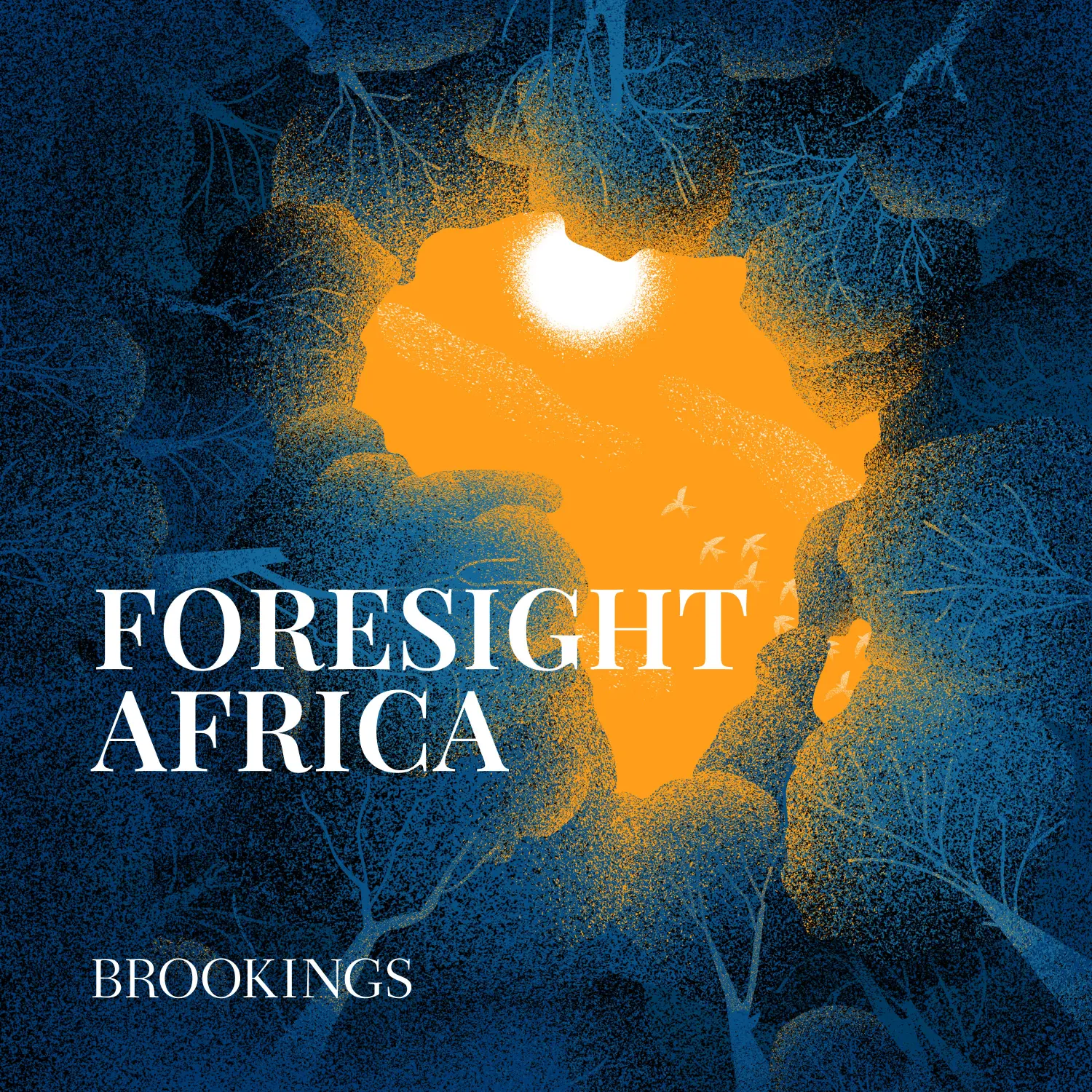
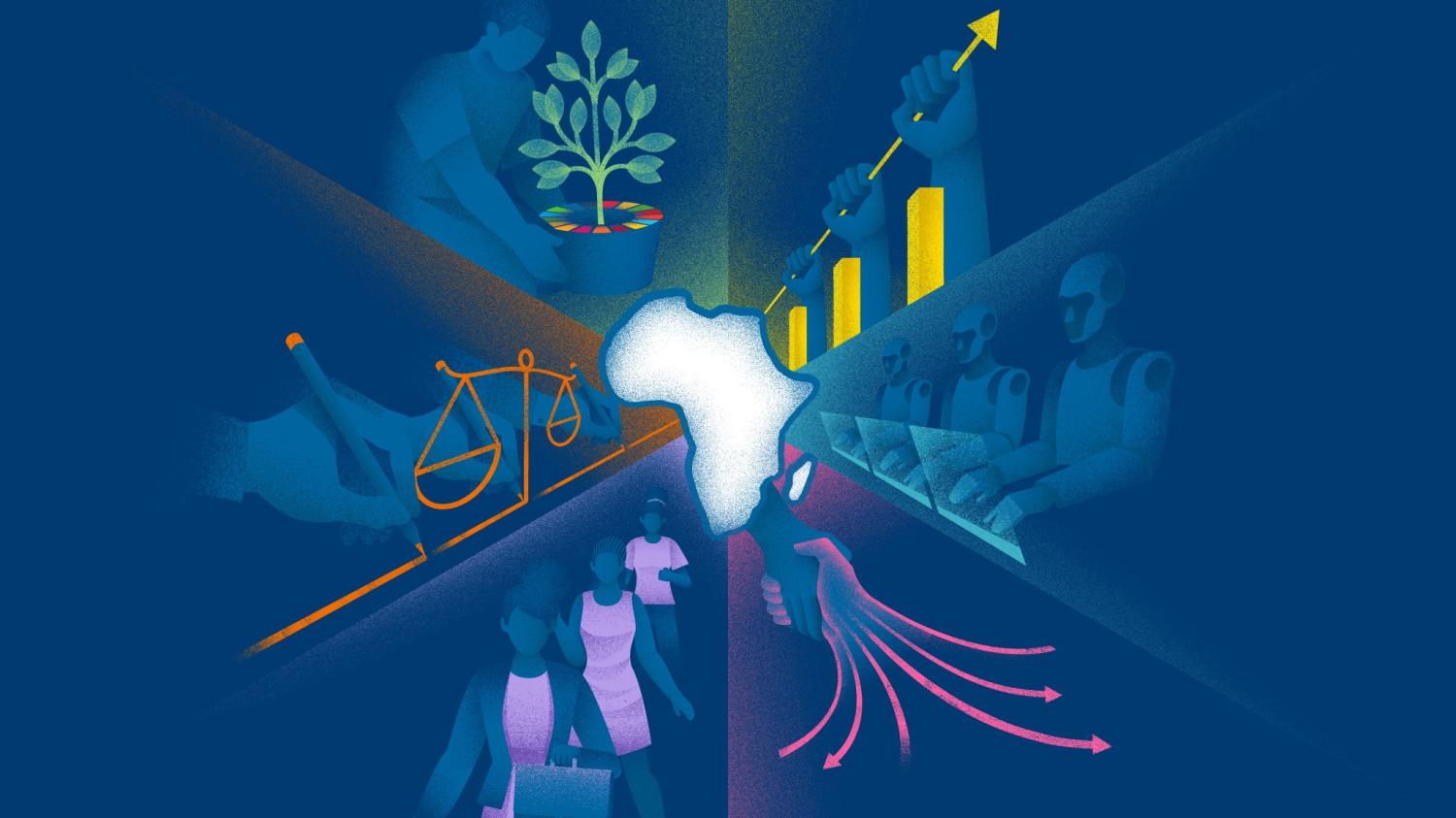
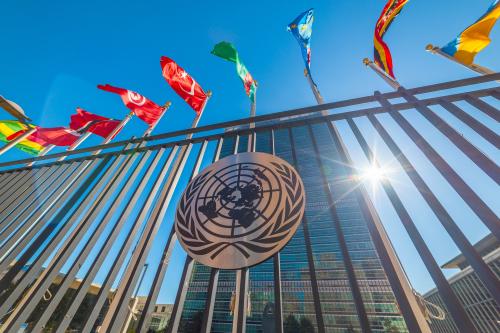
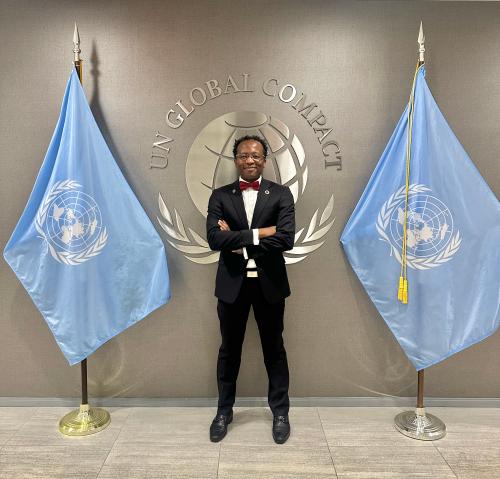
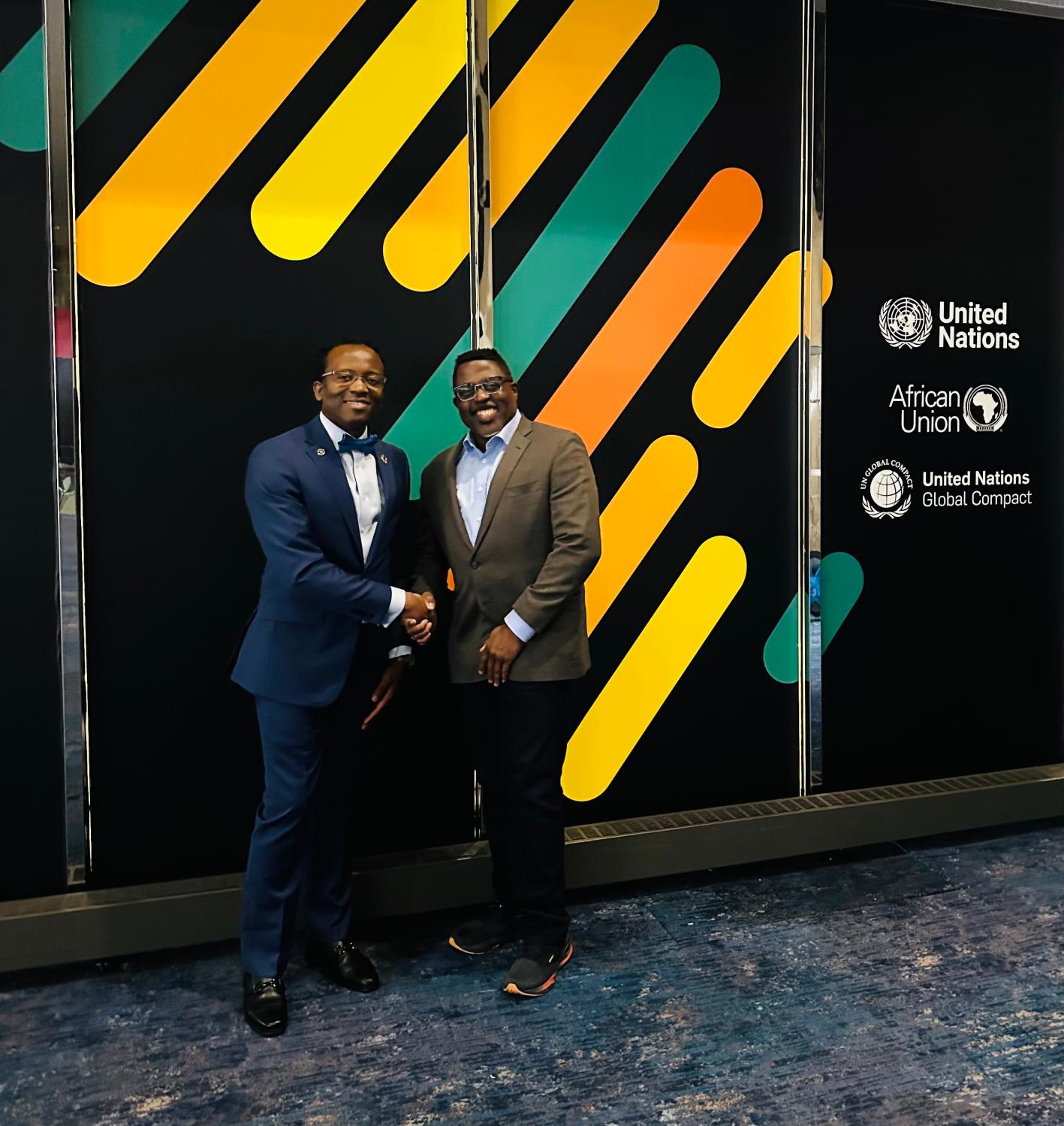
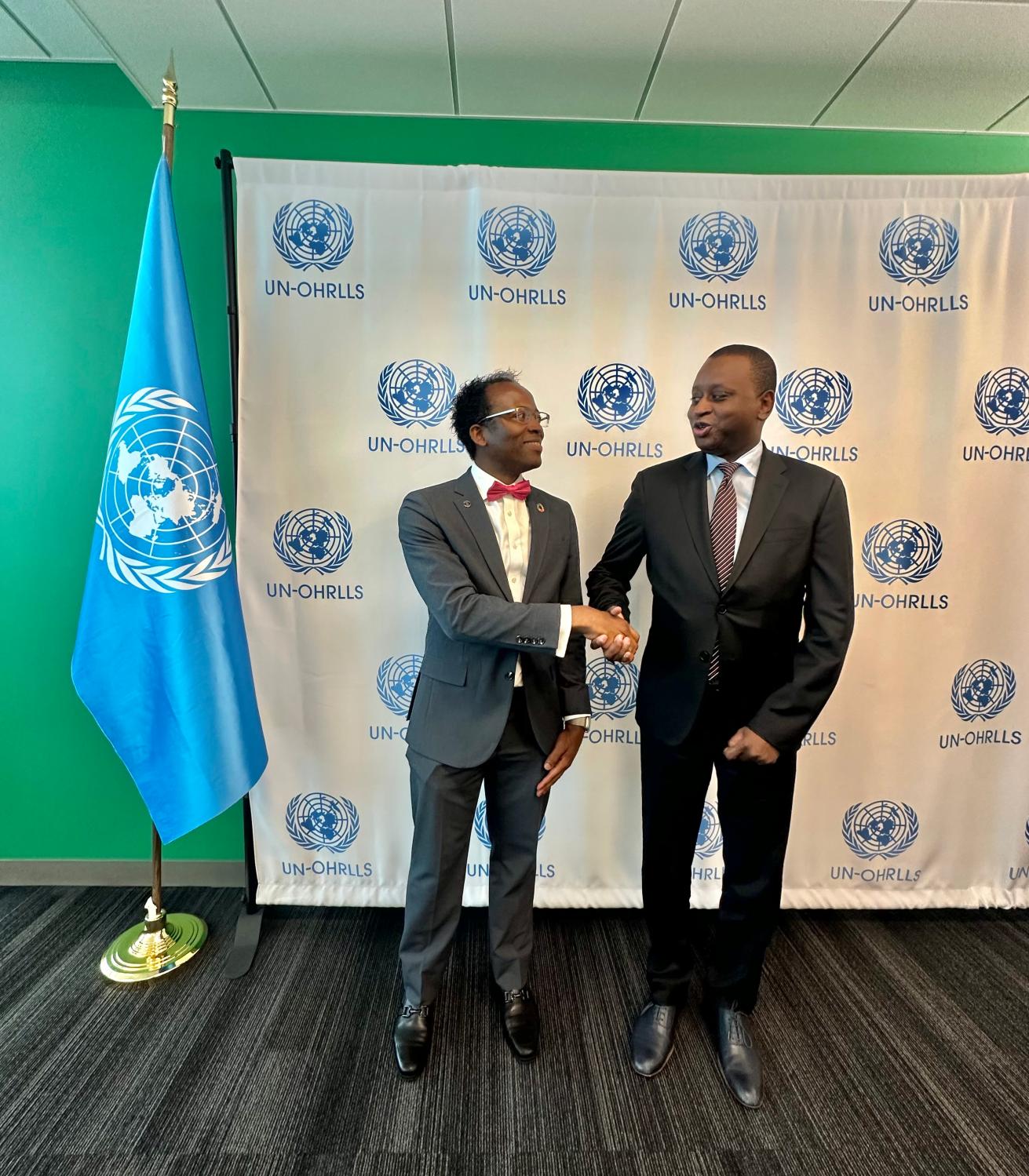
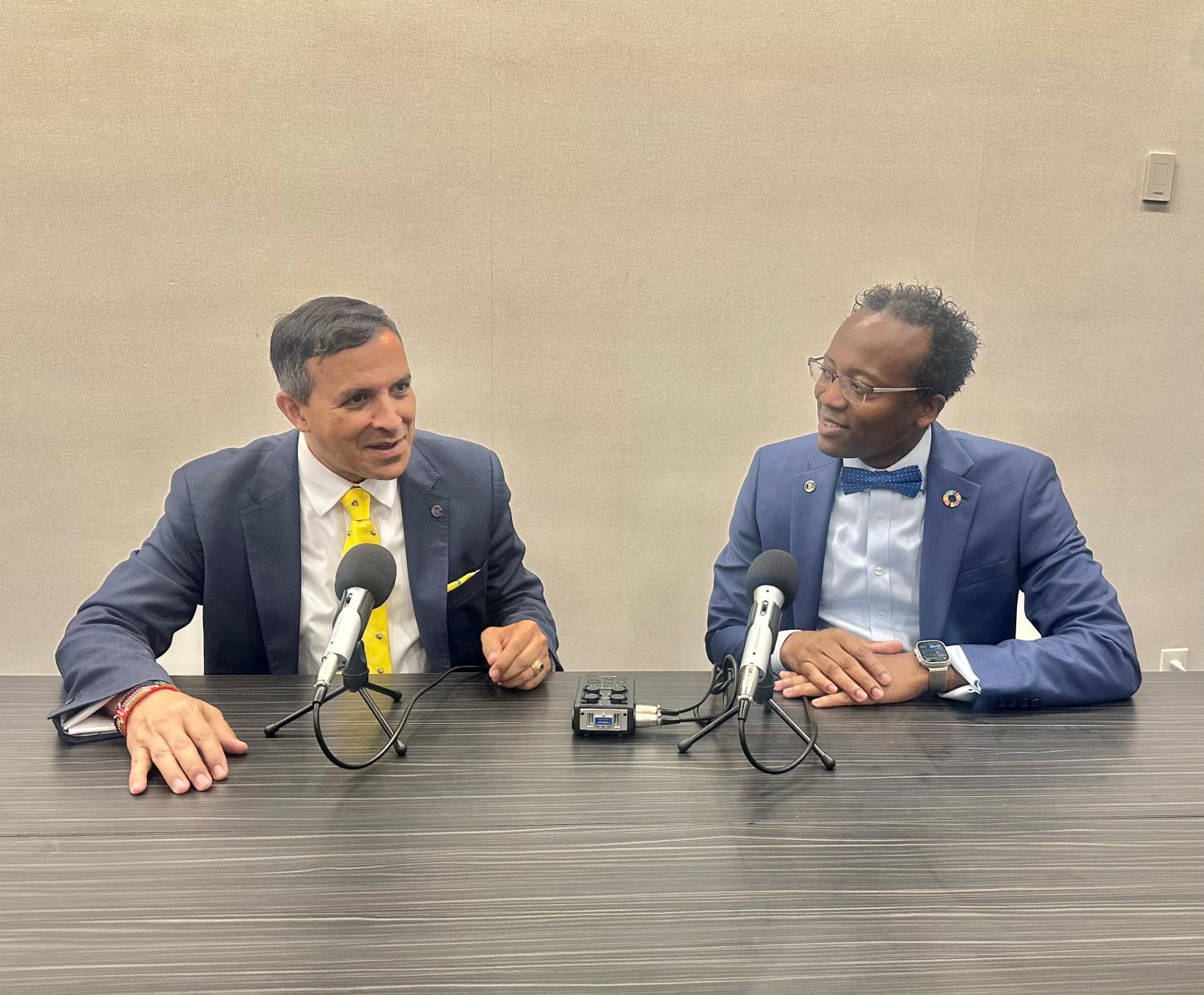
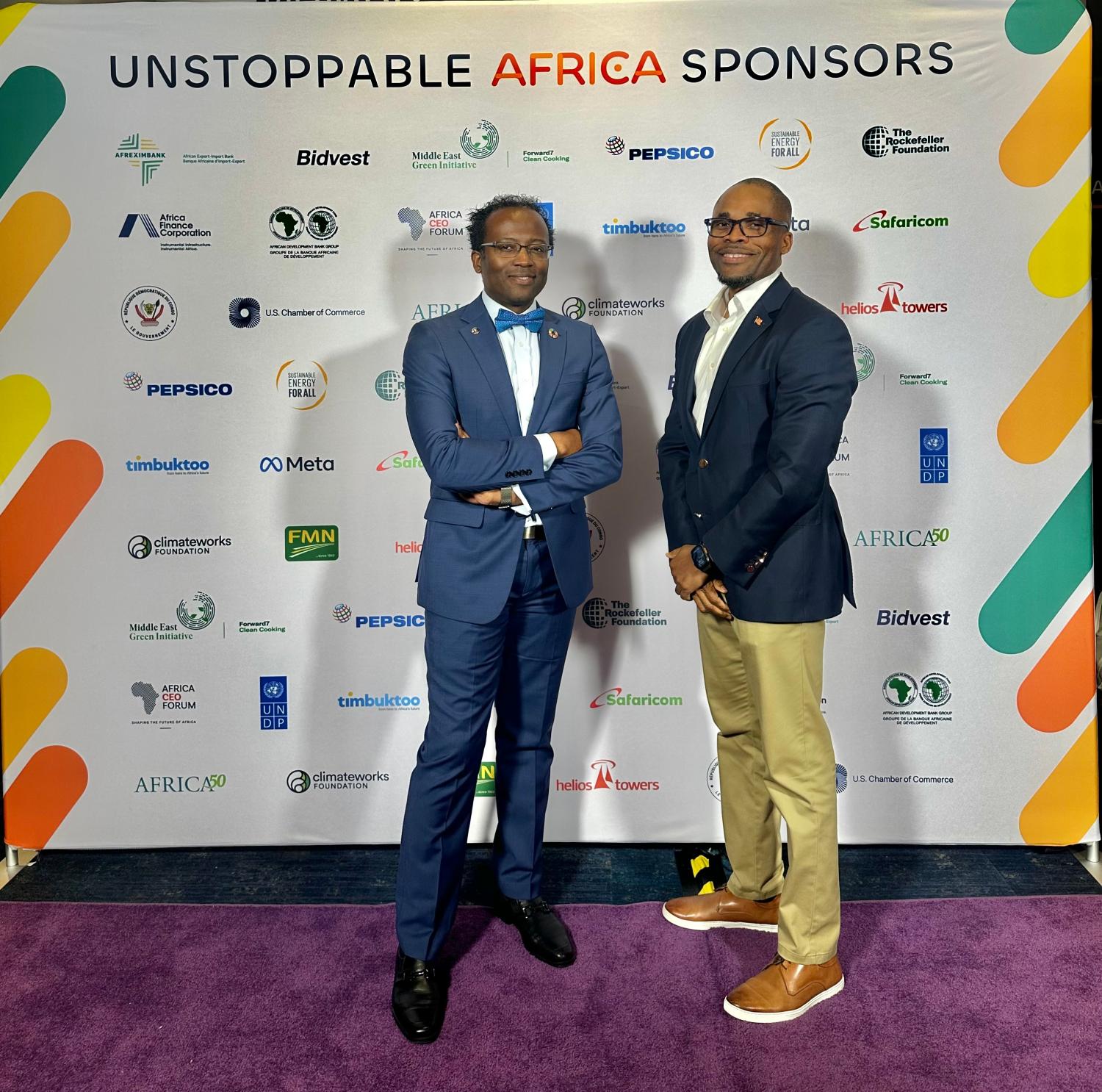




Commentary
PodcastThe United Nations’ essential role in global peace and security
Listen on
Foresight Africa Podcast
October 22, 2025